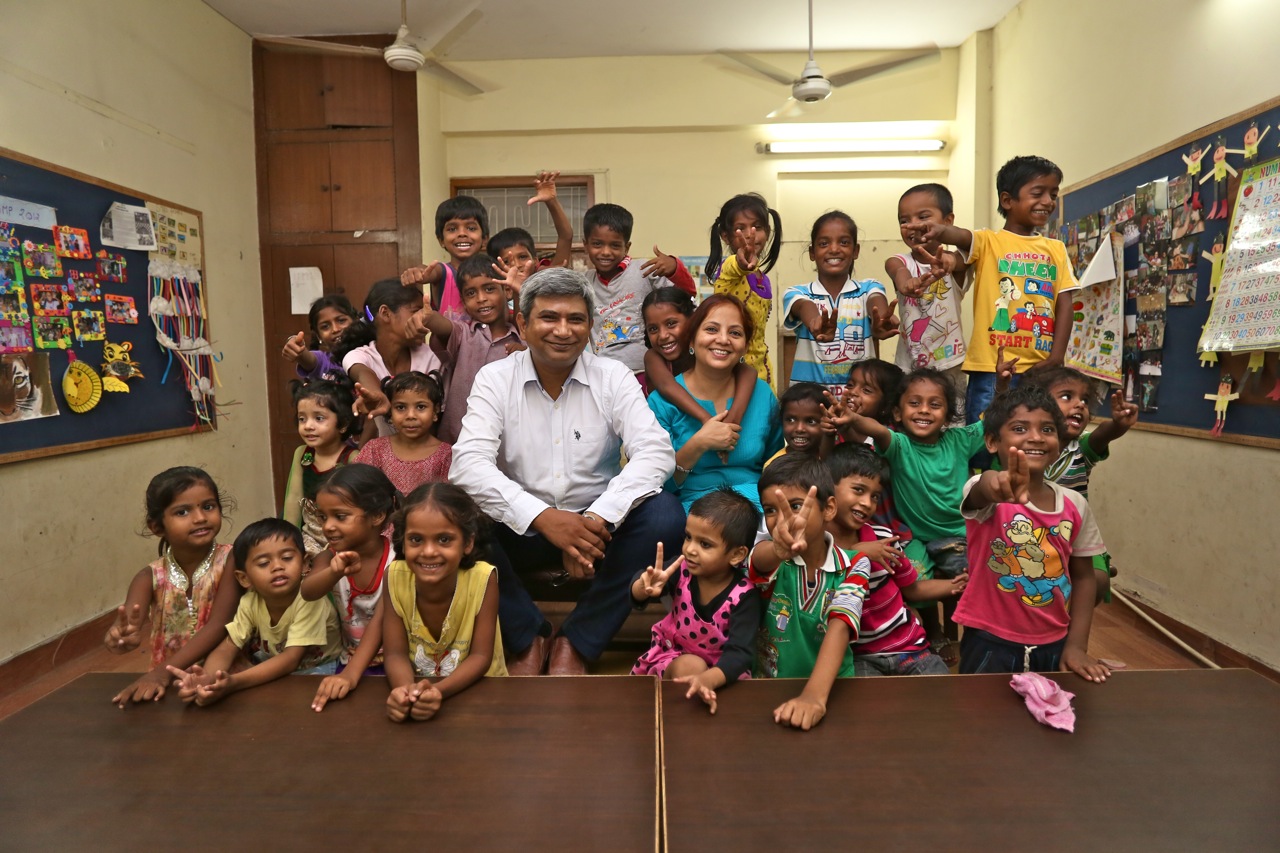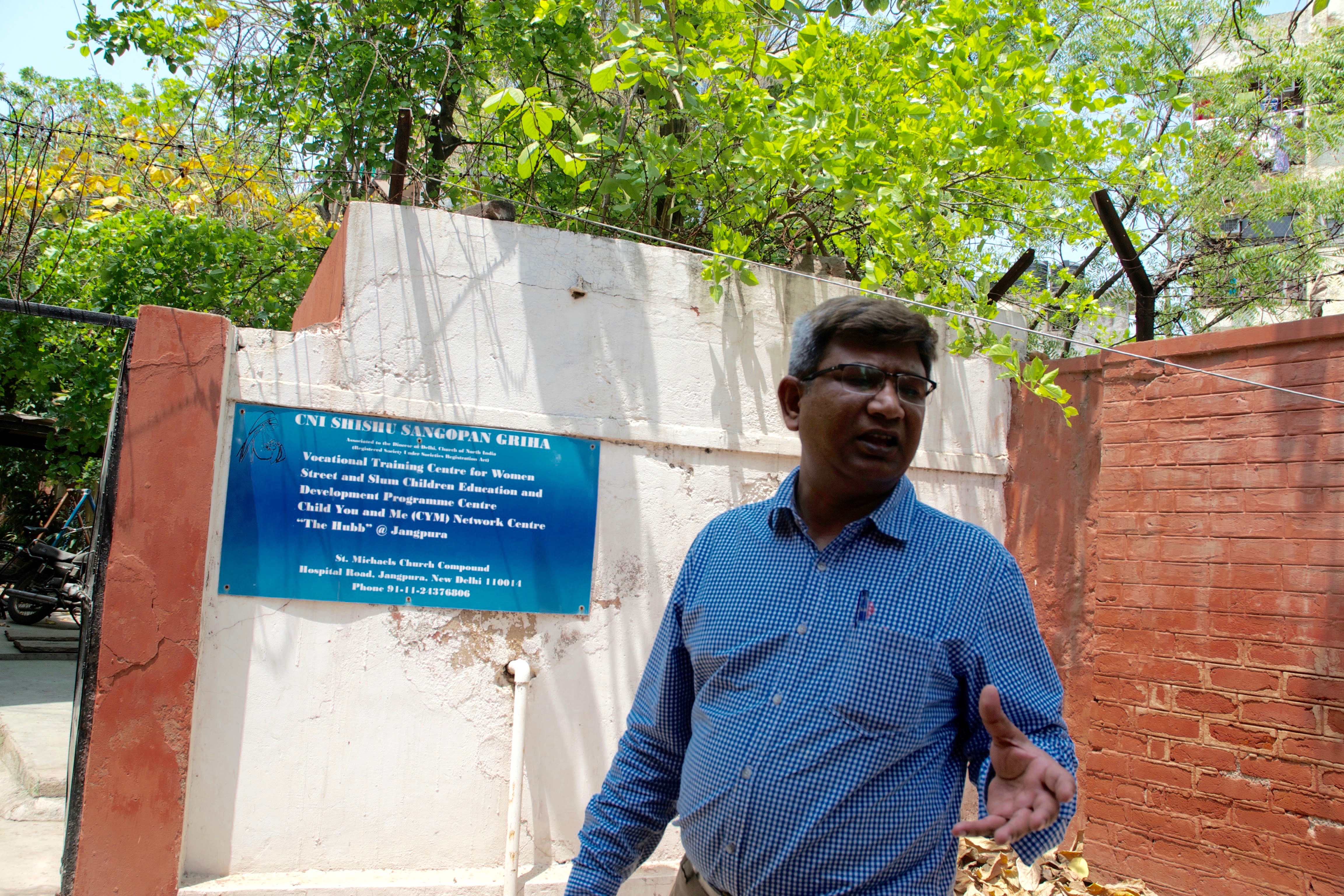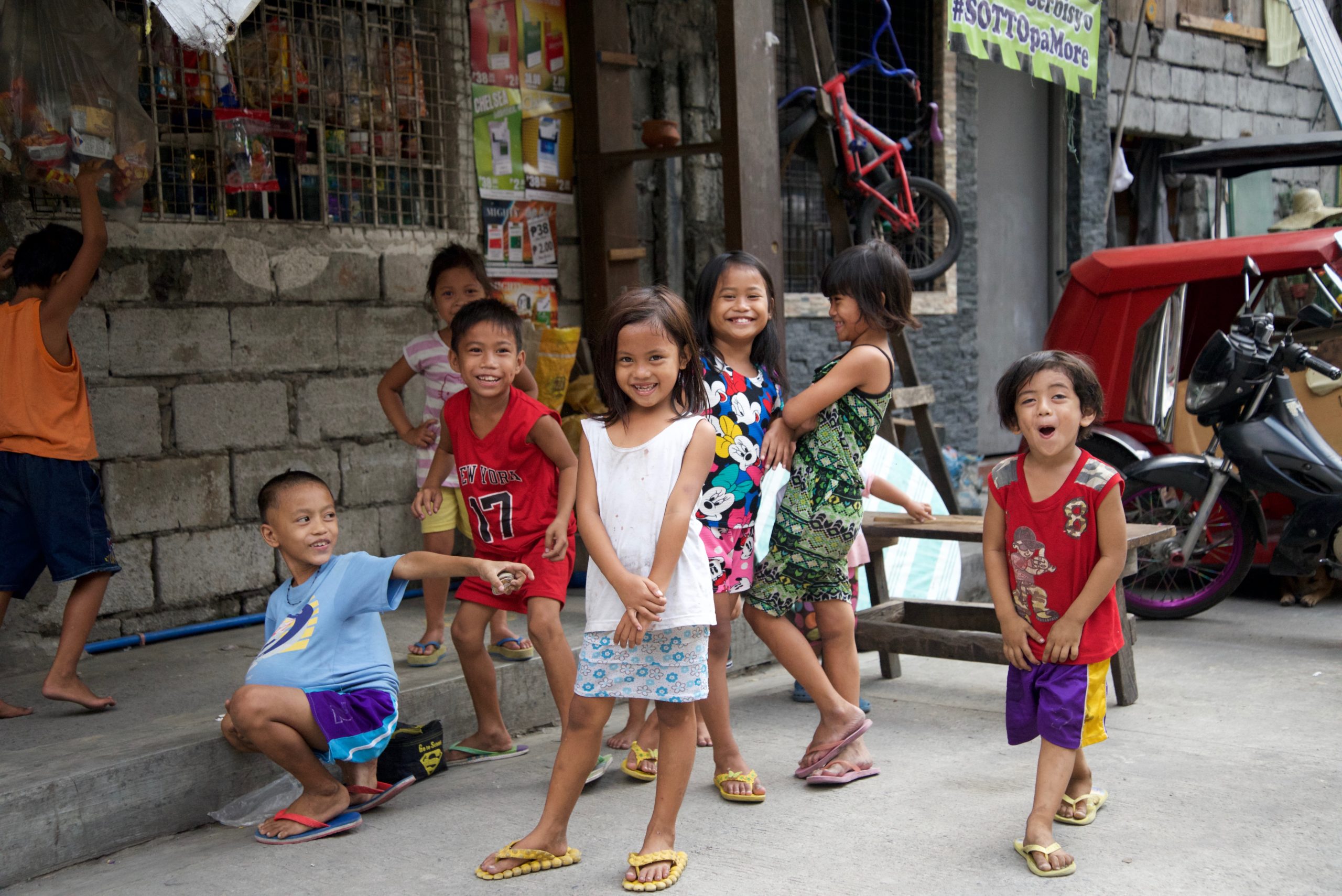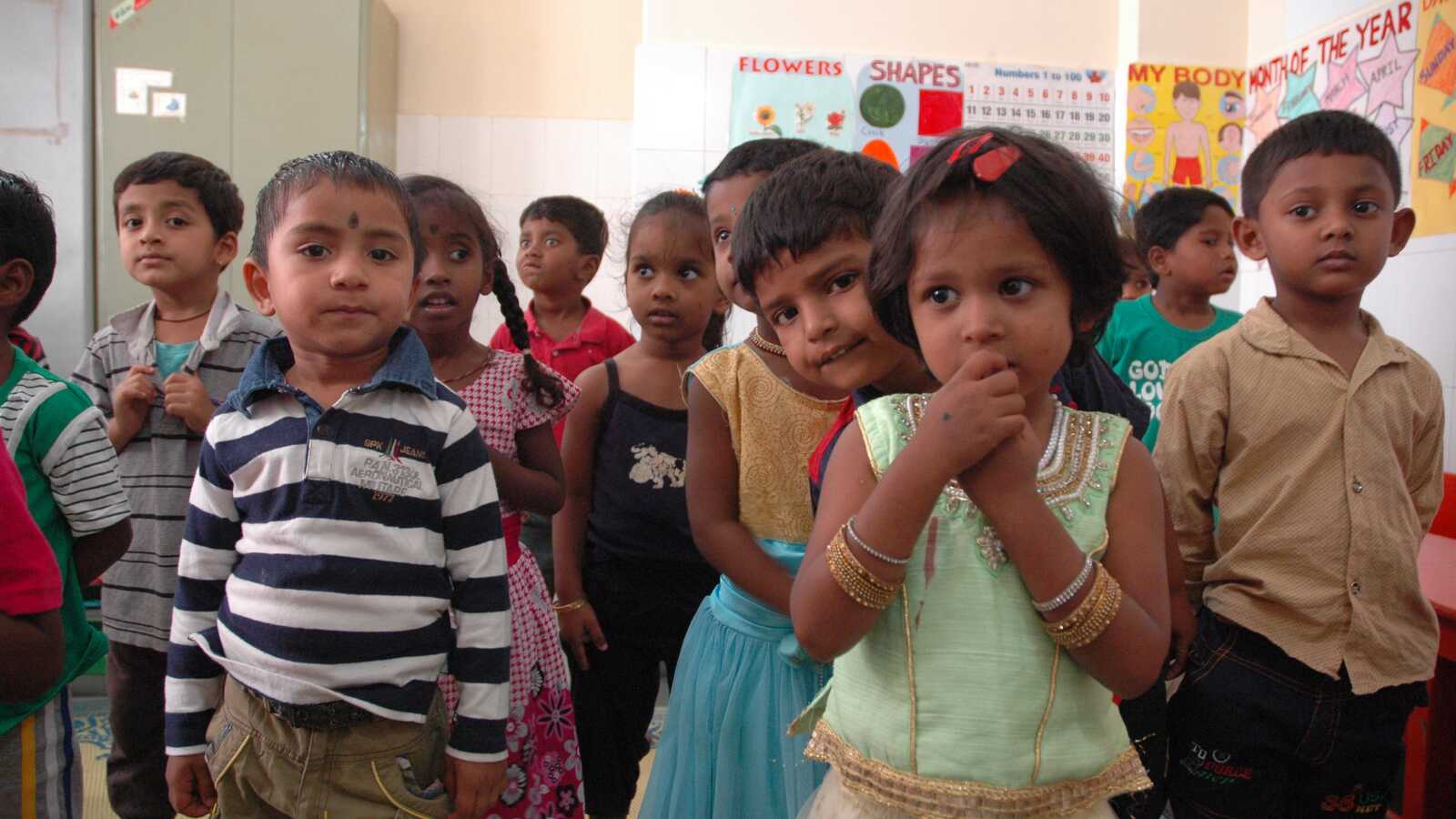Meet Jim De, Holt’s new India country director! From caring for foster children in his childhood home, to finding families for children orphaned by the 2004 tsunami, to greeting Holt adoptive families at the Delhi airport, he has always followed his life’s passion — advocating for his country’s orphaned and abandoned children.
It was 2 a.m. and 7-year-old Jim De sat awake in his home with his mother. She changed a baby’s diaper while he held another one in his arms, feeding her a bottle of formula. Tonight was their turn for “night duty,” a task in which they stayed up all night to care for the 30-40 children living in the care center that the De family ran out of their home. Jim and his mother were on night duty about once a week — and he loved it!
“I was very excited about doing that kind of stuff,” Jim says now, during his visit from India to Holt’s headquarters in Eugene, Oregon. “It was so much fun to stay up all night — but by 4:00 in the morning, you were out!”
Throughout his years growing up in India, serving children — growing up with them as friends and welcoming them into his home as family — was a normal part of his life. Jim’s father worked as treasurer for the Church of North India and his mother was involved with child welfare organizations. What started as his family fostering just one child — Tom, who needed somewhere to stay while his international adoption was finalized — soon turned into the De family fostering many children out of their home and eventually opening up an official care center for these children.
“They were my friends,” Jim says. “For us, it was exciting! There was always a new child in the house, a new friend — we always welcomed them.”
With such a beginning, it’s no surprise that Jim has since devoted his life to serving orphaned and abandoned children in India. He has worked with Holt in various capacities for almost 20 years. Holt families who adopted through the India program may know Jim as the friendly greeter who met them at the airport in Delhi and got them settled in before meeting their child for the first time. The past two years, Jim has also served as a consultant for Holt, informing Holt’s U.S.-based India program of the needs and opportunities in the country. Then, in March of this year, he stepped into his new position as Holt’s India country director.
Throughout his life, Jim has held a wide range of positions and responsibilities — all impacting the lives of children and families. He has worked with Indian birth families through their decision to relinquish their child for adoption, managed a boarding house for at-risk girls, set up a school for children living in the forests of Mayurbhanj and organized a task force to care for children in India’s coastal villages who were orphaned by the 2004 tsunami. But in all of these roles, he has held fast to just one singular job and passion that is rooted in his Christian faith — caring for the children of his country.
“I am partial to my country, probably everybody is,” he says, laughing. “The country’s children are not my children, but I am in some way responsible for my people.” However, there was a time in his life in which he saw himself pursuing a different passion.
As Jim grew up, he developed a passion for computers. In 1991 and 1992, the first generation of computers came to India and he worked his way through school to become a computer engineer. This was his life until one day his father approached him about working on the computer system for the care home. From here, he began following his father around to the many projects he was a part of — from homes for orphaned children to a factory that made artificial limbs for those who had lost theirs in war. Gradually, he began to develop a love for social work as he came to understand the fulfilling, although difficult, job that it was.
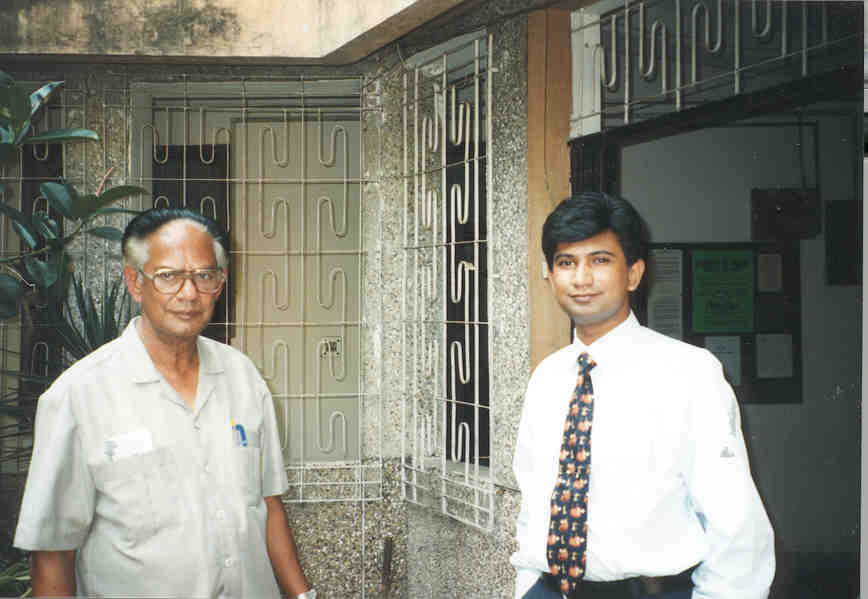
“I could see a lot of human interaction and felt the impact that you could do for those lives,” he says about the work he saw his father doing. “It was beautiful.”
As Jim continued to travel with his father, he also began to see and understand the great need in his country. He saw children who were forced to be child soldiers and those who lost their parents from natural disasters — many of them now living on the streets, without the food and clothes they needed.
“When you are interacting with people who are surviving with basically nothing on a day-to-day basis and don’t know what happens tomorrow, it makes you realize how valuable life is,” he says. “And then you realize how much inequality exits between you and that person.” Filling this gap of inequality soon became Jim’s passion.
In 2001 he traveled to Europe to study nonprofit project management and received a degree from Holland’s Management Development Foundation. He also went on to get an MBA from La Trobe University in Melbourne, Australia— gaining skills he hoped to use serving orphaned and abandoned children in India.
As a country, India has struggled with poverty since colonization ended about 60 years ago. At the time of independence, the majority of India’s population was uneducated and living in rural environments. When the country began to develop economically towards capitalism in the mid-1980s, it struggled to keep up with the sharp population growth — expanding from 600 million people to 1.3 billion in just 65 years. In this time, sharp inflation, job scarcity, a continued lack of education and religious differences among other factors have all contributed to keeping the majority of India’s population living in poverty.
India has also fallen victim to many hardships over the past couple decades. In 2001, a 7.7 earthquake devastated the city of Gujarat. Three years later, another earthquake and tsunami in the Indian Ocean wiped away many southern coastal villages. And today, violent fighting continues along India’s northwest border with Pakistan and also on the country’s northeast border with China. Many adults have died from violence and natural disaster, leaving their children without families. Other children run away from home on their own accord, hoping to escape their family’s extreme poverty. But most of these children end up living on the streets, sleeping in train cars and begging for food and money from strangers.
“India has the highest number of orphaned children in the world — about 20 million kids,” Jim says. Most of these orphaned and abandoned children are, as Jim refers to them, “invisible children” — children living on the street without support, guidance or care. But of these 20 million orphaned children, an estimated 100,000-300,000 are living in institutional care. Since Jim began working with Holt in 1997, he has sought to help these children — the ones in institutional care — find loving, permanent families.
Today, Jim lives in Delhi with his wife, Vandana, and two daughters, Divina and Sarina. He coordinates and manages Shishu Sangopan Griha (SSG), a home for over 80 girls in danger of separation from their families — all of them supported by Holt sponsors. SSG was started by Jim’s parents in 1979 and it is also the organization where Jim met his wife, who has been working there for over 24 years. Jim also worked with the Delhi government to develop a program for foster care in 2006, a process fashioned after Holt’s model of foster care. He is the founder-secretary on the board of Karuna, an organization that cares for orphaned children with severe disabilities; manages a center that helps impoverished and refugee women gain vocational skills to support their families; and helps educate tribal children in Orissa who are labeled “untouchable” by the Hindu caste system — a status that renders them unable to attend most schools.
Although his role in these different organizations is largely working to achieve the big-picture goals through planning, designing, monitoring, managing and evaluating — he takes great care to stay in touch with the true purpose and passion of his work.
“I like being there on the ground — meeting people, talking to the kids — wherever I go. You learn so much from these people,” he says. “You learn about their realities of life. And that keeps me motivated — just to listen to them and see what’s happening in their life.”
Jim is looking forward to the work that he will be a part of with Holt. “I’m very happy to be associated with Holt now. It’s an organization that fits into the same ideals that I believe in — faith, service and children,” he says. “These are the three things that matter in life.”
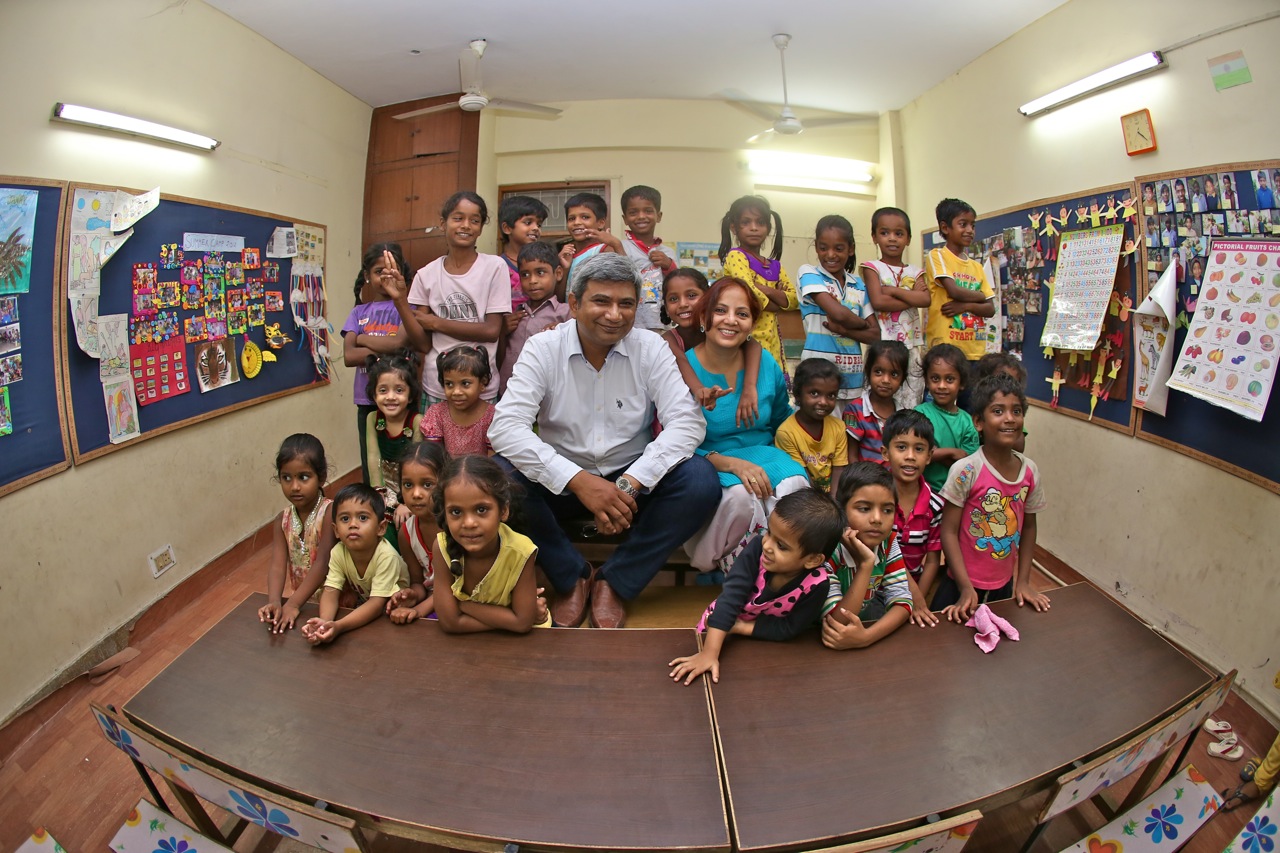
In his new position as Holt’s India country director, he will work to identify the greatest needs among orphaned and abandoned children in India and develop new and existing programs that will work toward sustainable solutions.
“It’s always good to have a beautiful dream,” he says, “but eventually someone has to come and manage that team.”
Holt is blessed to have, in Jim, both of these things. Not only is he someone with experience and management skills, but he is committed to realizing a beautiful dream for the orphaned and abandoned children in his country.
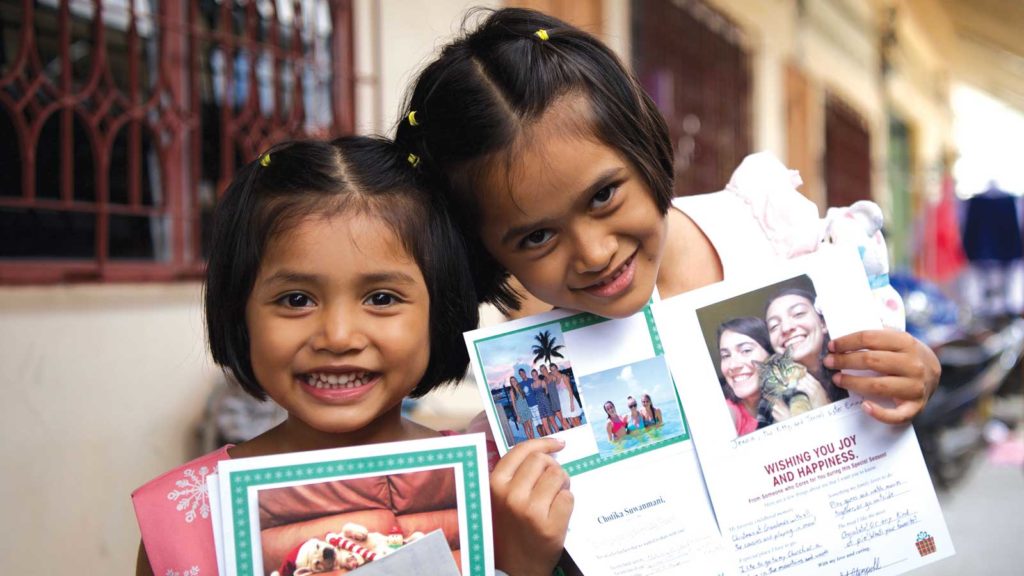
Become a Child Sponsor
Connect with a child. Provide for their needs. Share your heart for $43 per month.
